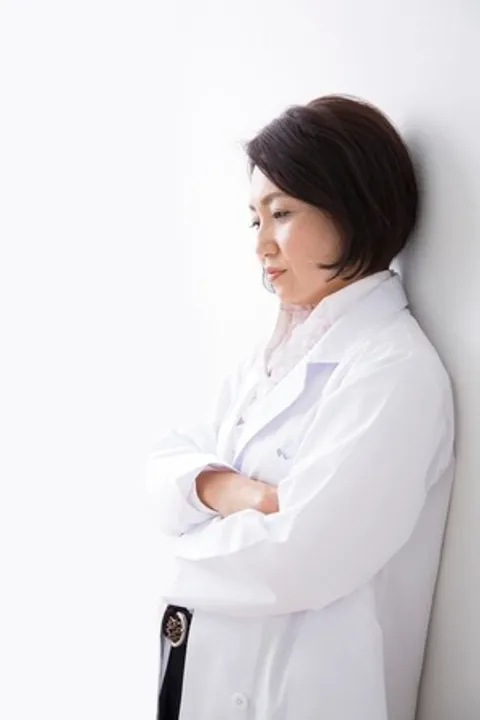How I Ward Off Depression in Residency

PaylessImages/123RF.com
“At least you took a shower today,” I thought, as I slowly put on my pajamas and climbed back into bed. A week had gone by since I last left my apartment, other than to attend some classes, and I’d lost my will to care. I could reason that my grades were slipping, that I was losing a scary amount of weight, and that I wasn’t socializing the way I used to. I was immersed in a depression so deep I felt like I was drowning and struggling for every breath. Looking back, there were many clues that I was headed towards a major depressive episode while I was in medical school. Since then, I’ve had therapy and have healthier life habits that have helped prevent another depressive episode. Here are some ways I’ve found to prevent depression during medical school and residency.
Talk about your emotions
There’s a stigma against sharing emotions as a physician. I sensed, as early as my freshman year in college, that any emotion other than confidence was seen as a sign of weakness and could jeopardize my career. I learned to bottle my emotions, except to cry silently when alone and coping with the stress, worry, and anxiety of achieving the only career I had ever wanted. After being forced to confront my depression in medical school, I realized how cathartic it was to discuss my feelings. Talking about your emotions with others (i.e. family, friends, trusted colleagues) helps you gain perspective and can build a safeguard in case things take a dangerous turn.
Recognize your professional boundaries
My biggest challenge at the beginning of residency was ascertaining what was expected of me versus what was considered above-and-beyond. I worked additional hours completing menial tasks I thought were expected of me, which led to disappointment when my efforts weren’t recognized. I often didn’t advocate for myself because I thought it wouldn’t lead to suggested administrative changes. I didn’t define my personal/professional boundaries with my peers and became increasingly suspicious of their intentions. The effect: I felt emotionally lost and was becoming progressively apathetic at work. I can now say that I’ve found a happy, middle ground but overlooking this could have led to unintended consequences for my patients and me.
Eat to live
It may be cliché to say, but you really are what you eat. It’s easy to eat the junk food in the call room or nursing station, but it’s only a temporary fix for stress. I noticed a correlation between my mental clarity and my eating habits about a year into residency, and this, along with some personal convictions, led me to become vegetarian. You don’t have to go to that extreme, but it’s easier than ever to eat healthy on the run, so there really is no excuse. The simple act of being mindful of what I eat has helped me immensely.
Move your body
This goes along with eating a proper diet. Some residents are “gym rats” and work out every day, but I try to stick to the general recommendations of 30 minutes of intense movement, three times a week. Sure, I slack sometimes if I’m busy or exhausted, but that’s why there are gadgets like step counters, so you can be active during your scheduled daily activities.
Manage your finances
I don’t know about you, but when I started residency, I felt like I was being crowned queen. All the years of living off school and student loan debt were finally going to pay off! Alas, I was wrong. I was surprised how expensive life was, even with a $50,000+ paycheck a year. Student loan payments, licensing examinations/prep, and everyday expenses start to add up. Just because you’re now called “Doctor” doesn’t mean you can spend all your money frivolously. Prevent the headache of limited finances with a clear budget.
Take part in non-medical activities you enjoy
This is self-explanatory. Even if work isn’t a source of stress for you, we all need to change our environments and remind ourselves that we are sentient beings. Schedule time to hang out with friends and family, volunteer, or just sit on the couch!
Ask for help
The best thing I’ve ever done for myself was asking for help when my depression became overwhelming. This became particularly evident when a dear friend of mine took her life when I was struggling with my own depression. My fear of what others thought of me professionally suddenly became insignificant compared to the extreme outcome of her depression. I am thankful that I opened up to a classmate who escorted me to my primary care physician to discuss my issues.
As healthcare providers, we encourage our patients to discuss their most personal topics with us. In the process of learning to care for others, don’t forget to care for yourself emotionally and physically.
Related Posts
